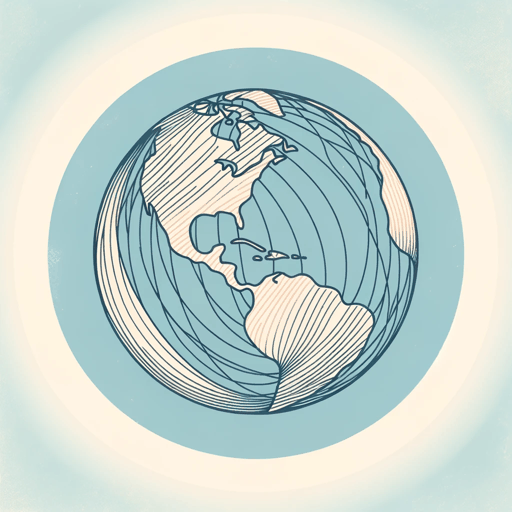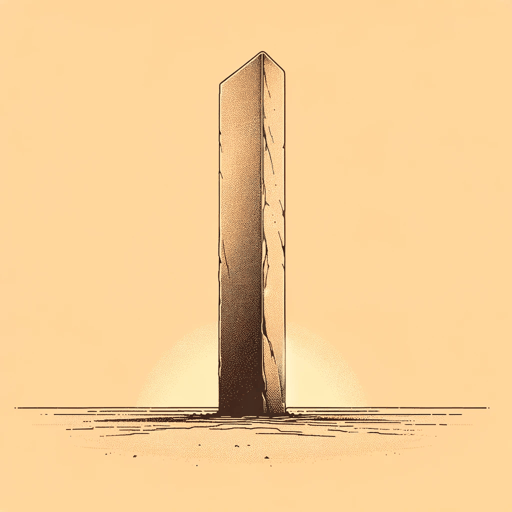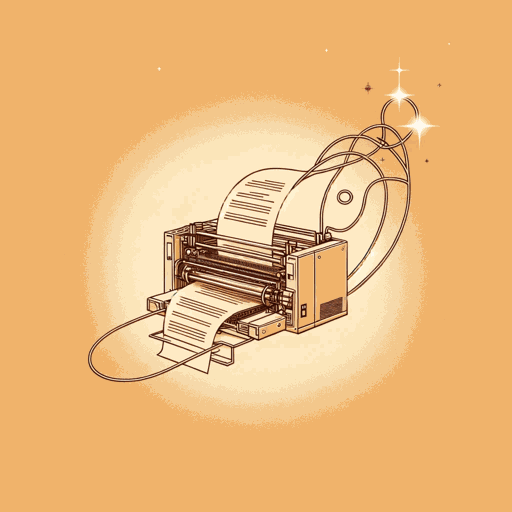28 pages • 56 minutes read
Arthur C. Clarke'If I Forget Thee, O Earth . . .'
Fiction | Short Story | Adult | Published in 1951A modern alternative to SparkNotes and CliffsNotes, SuperSummary offers high-quality Study Guides with detailed chapter summaries and analysis of major themes, characters, and more.
Summary and Study Guide
Summary: “If I Forget Thee, Oh Earth”
“If I Forget Thee, Oh Earth” is a short story by British author Arthur C. Clarke that uses a futuristic, science fiction setting to explore the themes of Coming of Age as an Individual and a Species, Legacy and the Relationship Between Fathers and Sons, and The Dangers of Technology. First published in 1951, the story uses a third-person limited perspective to narrate the experiences of a 10-year-old boy named Marvin, who travels with his father outside the lunar colony where they live to view Earth as it appears from the Moon.
Arthur C. Clarke is perhaps best known as the author of the screenplay for the 1968 film 2001: A Space Odyssey. Considered a major author within the genre of science fiction, Clarke is renowned for writing stories, novels, and nonfiction that look seriously at how technology might affect human life in the future.
This summary references the version of the story found in The Collected Stories of Arthur C. Clarke, published by Tor Books in 2000.
Marvin is a 10-year-old boy who lives in a lunar colony of humans at an unspecified future date. As the story begins, Marvin and his father are moving upward to the colony’s surface. The boy notices that the food-growing level (“the Farmlands”) smells of living things, unlike the scentless air on the lower levels of the colony where people live.
Marvin wants to stop at the Farmlands and enjoy the experience, but his father makes him keep going. He feels excited because he knows he will soon go “Outside” for the first time in his life. They keep going until they reach the area where transportation vehicles are located. Marvin and his father enter a car that is used for traveling outside of the colony. The airlock is opened, the air pressure is released, and the father drives the vehicle out onto the surface of the Moon.
Marvin looks out of the vehicle at the landscape, which he has previously seen only in photographs. He sees stars for the first time and observes that their light is constant rather than twinkling, unlike in the famous nursery rhyme “Twinkle, Twinkle, Little Star.” The boy observes the plain features of the landscape; at one point, he notices the entrance to a mine. As they hurtle along the Moon’s surface, Marvin notices that his father is speeding as if “to escape from something” (404). They eventually reach the edge of the plateau upon which the colony is located. To Marvin’s surprise, his father drives beyond the edge onto a track that leads downward.
Night falls, and fewer signs of human activity are evident, although Marvin notices the remains of a rocket that crashed long ago. After driving for hours, they reach an area that Marvin realizes should be utterly dark because the sun is behind them. However, the area is brightly illuminated by the reflected light from Earth as the planet rises into their view. Marvin then sees the “great silver crescent” of Earth for the first time in his life (405), noticing the beauty of its geographical features. He also notices the glow from residual radioactive energy on the planet’s surface, even in areas that should be in shadow: The implication is that at some point a nuclear war on Earth made the planet uninhabitable.
Marvin listens as his father recounts the story of how Earth used to be and what happened to it: One day communication and supply deliveries from Earth stopped because of the nuclear destruction, leaving the colonists all alone as the only surviving humans. The father explains that the remaining humans in the lunar colony must never forget that one day Earth will be habitable again, so while life in the lunar colony may seem purposeless now, its residents must survive so that a later generation can return to Earth. Marvin understands that his father has taken them on this trip to convey this message, which he will one day convey to his own children, and they to their children, for as many generations as necessary. The story ends with Marvin and his father beginning the drive back to the lunar colony.
Related Titles
By Arthur C. Clarke






